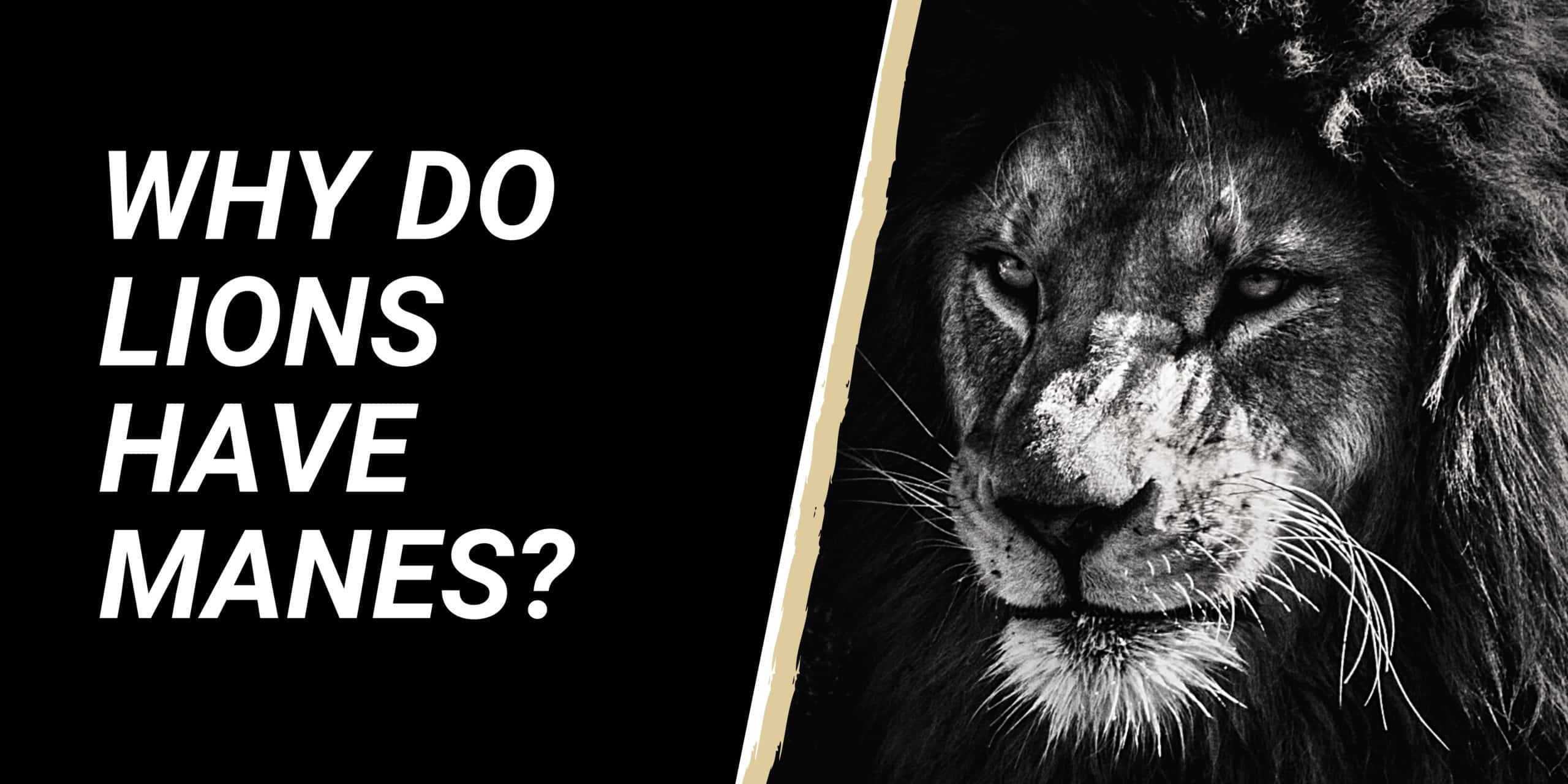Question: Why do lions have manes?
Contrary to popular belief, the male lion’s mane is not used to protect his neck from potential attacks, rather, the mane is a visual symbol to communicate strength, health and status.
Let’s learn more about the lion’s mane, its function, and why lionesses don’t have manes.
The Lion’s Mane
The mane has often been viewed as a shield of sorts to protect the lion during a fight with other male lions. However, this information is misconstrued. Male lions usually attack the back and hips, not the neck. Instead, the mane’s color and size serve as a signal to other male lions. Much like a male peacock shows off its tail feathers, a male lion will show off his mane to others.
According to some, the female lioness is actually more attracted to the male lion with a darker, fuller mane as it connotes physicality and serves as a symbol of strength. With the mane, it’s all about attracting the ladies. Although desirable, having a long and lustrous dark ring of hair can often be quite a nuisance especially in the unrelenting heat of the African desert. But if that’s the price to pay for health, good genes, and, more importantly, attractiveness, then sign me up!
Do Female Lionesses Have Manes?
Yes and no. The majority of female lions will not sport a mane due to their hormones and an inability to produce testosterone which would aid in the growth of a mane as is the case with the male lion. Manes are also used to also attract females.
However, there have been rare cases to suggest the female lioness can grow a mane and scientists believe this may have something to do with elevated hormones. In Botswana, it was reported that five lionesses had grown manes and were showing male-like behavior, including roaring and mounting other females. Why? Well, some scientists believe this to be the result of an increased level of testosterone. But fear not because it appears that there is no risk to the lioness’s health and physical well-being.
Lion Fun Fact
Bridget, an 18-year-old female lioness at Oklahoma City Zoo, has been reported to have grown a mane in 2019 and local vets are still scratching their heads. Interesting, she has been mane-less for the first 18 years of her life and took under one year to grow the mane leaving everyone baffled. Her sister from the same litter has yet to grow a mane making the case just that more bizarre.
Frequently Asked Questions
People who ask, ‘Why Do Lions Have Manes?’ also ask;
Why do male lions have manes?
It has been an assumption that male lions have manes as a sort of shield for their neck to protect them from fights. However, much like a peacock, the lion’s mane is a symbol of strength and a signal to other lions about their physicality. Darker manes are quite physically demanding of the lion to its ability to retain heat as opposed to lighter manes, so, therefore, the darker mane is more appealing and status of strength. And according to recent studies, female lionesses actually prefer males with darker manes. “The darker the chocolate, the richer the taste…”
Do female lions have manes?
Although rare, there have been sightings of both wild and captive female lionesses growing manes. Researchers in Botswana collected data on five lionesses who had grown manes, and actually exhibited behavior specific to the male lion, including a deepened vocal call and scent-marking. In captivity, a zoo in Oklahoma City noticed one of their female lionesses growing a mane over a period of just under a year, stumping vets as to why.
When does a lion get a mane?
At two years old, the male lion will start to grow his mane which represents the onset of sexual maturity. And by age three, they should have a fully grown mane. Just as it is with humans, a mane will start off wispy and a bit scraggly eventually filling out and becoming a thick powerful mane.
What color is a lion’s mane?
A male lion’s mane color varies and can depend on age, genetics, and overall health. Some lions will have sandy-colored manes while some will sport a dark, almost black mane. Some suggest a darker mane is a sign of a healthy lion and one with higher levels of testosterone at that!
Do tigers have manes?
No. Unlike the lion, tigers do not have manes. Lions are believed to be the only cat species to possess the mane. Of course, there is always the exception, but for the majority, tigers do not sport manes which some suggest is because of their solitary nature.
